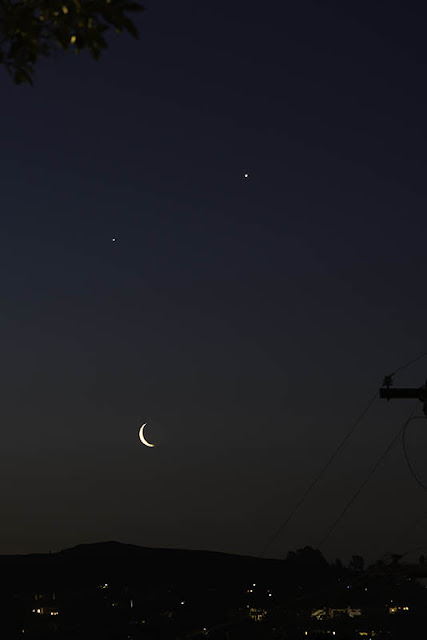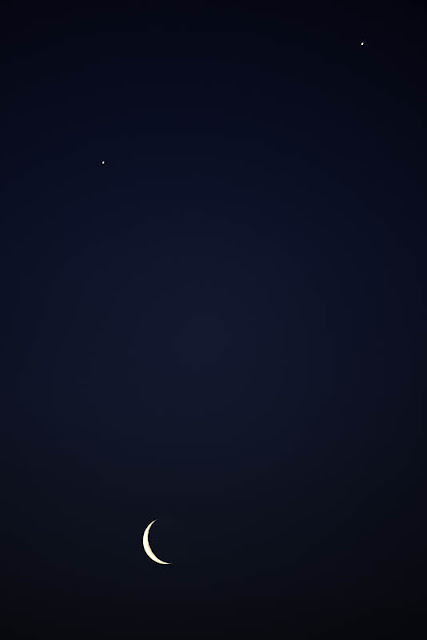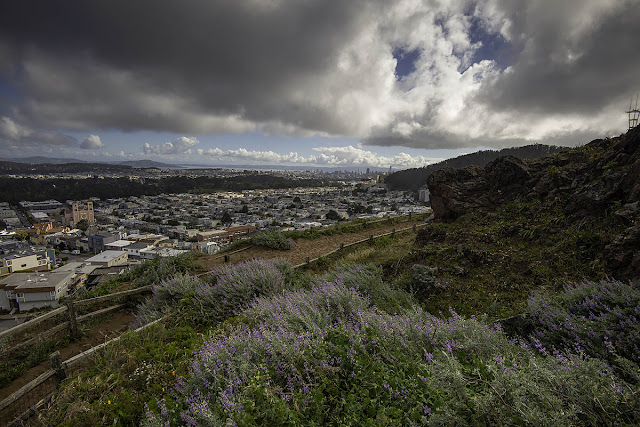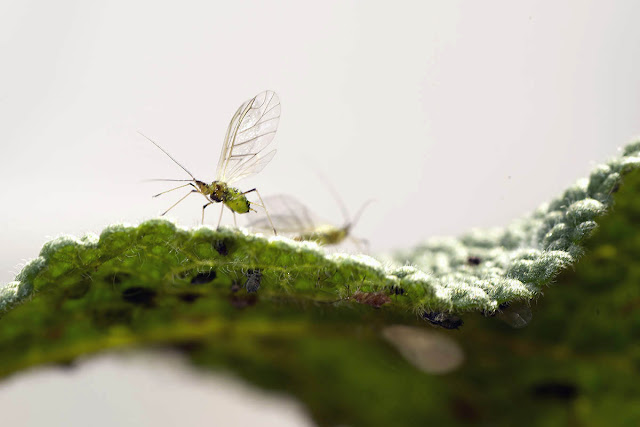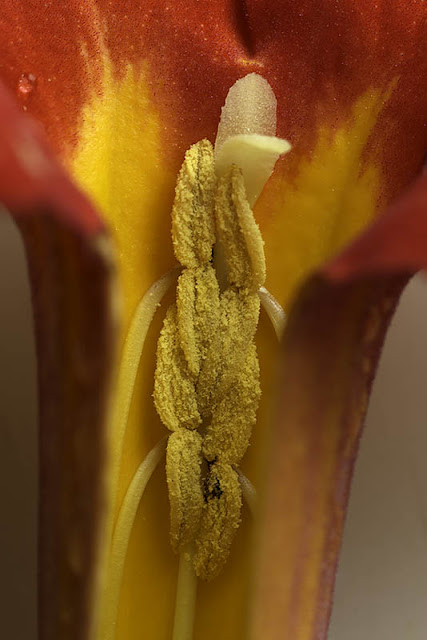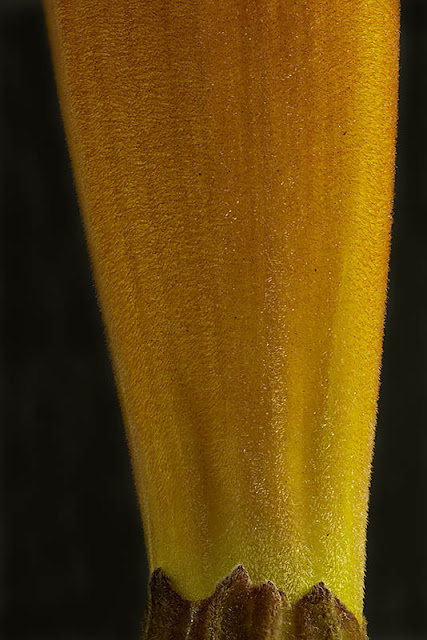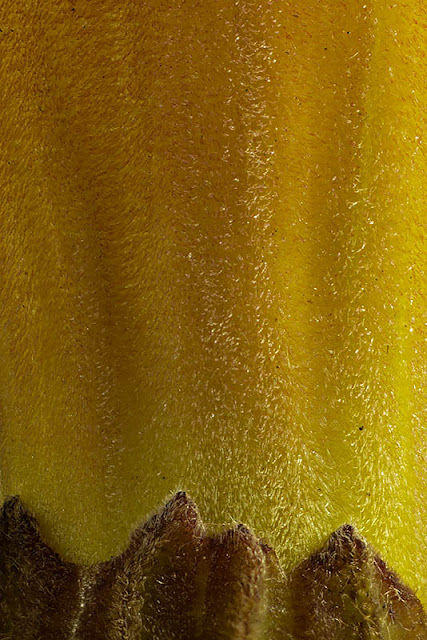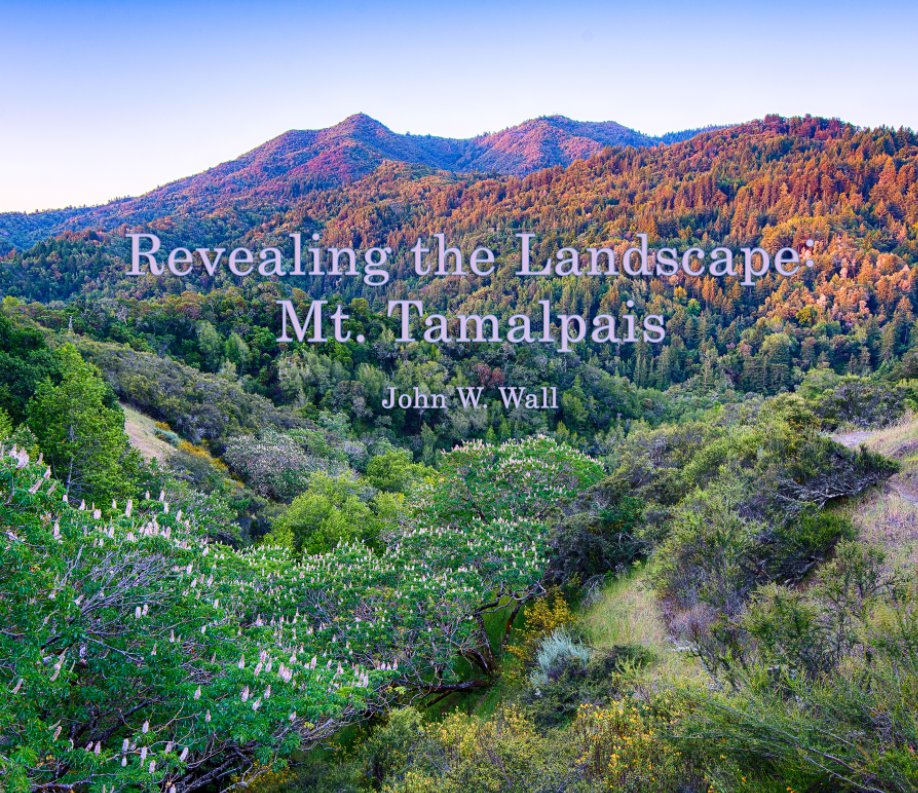The little bit of rain we've had lately has spruced things up on Mt. Tam quite nicely, and I'd have to call it "peak green" right now, although it'll probably last at least through next weekend. I hope so, because as I hiked today I wished I had my DSLR with me at a couple of choice spots.
I arrived at the locked gate about eight minutes before opening, pulling in behind a guy who got out of his pick-up truck right away and started walking toward the gate. I thought how lucky I'd been to arrive right behind the ranger, but the guy wasn't the ranger. He was just stretching his legs. The ranger came right about 7 a.m. and opened the gate, then asked us not to park in front of the gate, something I've been doing since before the ranger was born (not really, but that's how it felt). He even pointed out the "No Parking" sign right next to my car and told us that in the future we should wait over at the Pantoll campground parking lot. Okeedokee, we were fine with that. Things change.
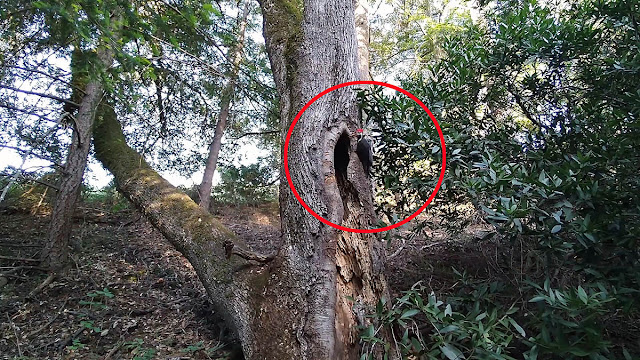
My wife was still recovering from the work week, so I hiked our usual loop by myself. I've been thinking about place names lately, and how I often don't remember the names of streets I've lived around for twenty years. We've hiked our loop so many times, though, I've made up my own names for places along the trail. Along the Old Mine, Matt Davis, and Bolinas Ridge trails there are place names on no map except the one in my head: Lupine Lookout, Tinker's Fence, Sun-Squirrel Tree, Bigfoot Bend, and Dandelion Overlook. This morning I added Woodpecker's Choice after spotting this pileated woodpecker. At first it was pecking inside the hole, but I got too close and it hopped out but stayed close by and went back in after I backed away.
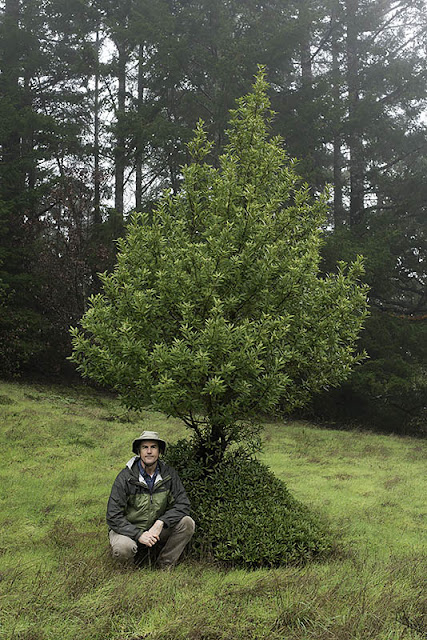
Back in January of 2016 I took this selfie with a young bay laurel tree that had an interesting cone-shaped base created by browsing deer. I recently passed by that tree and determined to photograph it now, six years later (that rain jacket has since fallen apart, and I lost the hat after driving away with it still on the roof of my car). I figured I might as well do it this morning so I wouldn't forget, even though I had to use my phone camera.
I didn't get the same angle, but it was interesting to see the difference. The basal branches were just shriveled dead things. I hadn't brought the original picture with me, but I'd remembered the dead tanoak in the background and thought I could line up with that, but there was no sign of the dead tanoak. In fact, there was tanoak in the background, and it looked healthy. Maybe the drought is doing to sudden oak death what it once did to the chorus-frog-eating bullfrogs some fool had put in Lily Lake.
On the morning's hike I'd exercised my legs on the trail, feasted my eyes on the gorgeous landscape, and enjoyed the sounds of singing hermit warblers and other birds, and I was almost back to Rock Spring when I realized I hadn't stopped to enjoy any smells. I picked up a dried bay laurel leaf and crushed it under my nose. The scent lit me up. The first time I'd done that was in the mid-1980s in the Santa Ynez Mountains behind Santa Barbara. I'd used a fresh green leaf and inhaled deeply -- too deeply! Whatever chemicals are in those leaves (pinocarbone and umbellulone, among others) made me so light-headed that I had to sit down before I risked toppling over.
* * *






